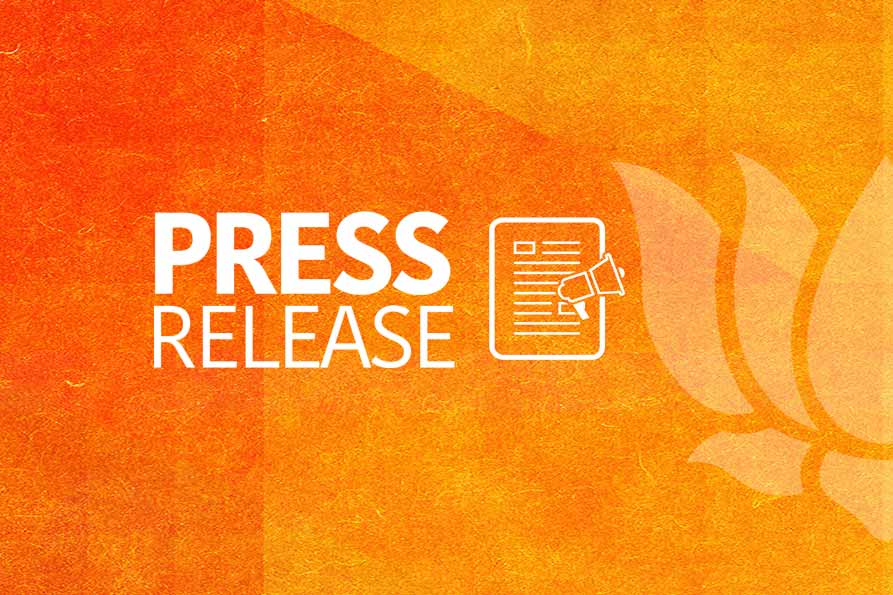
Speech of Shri Arun Jaitley on Hyderabad Terror Attacks made in Rajya Sabha in response to the statement of Home Minister
Mr. Deputy Chairman, Sir, the two bomb blasts in Hyderabad yesterday are really a serious challenge to India's sovereignty and identity. We have had, in the past two decades, a series of these incidents. We had thought in the last few months that the pace of these incidents had substantially come down, and that is exactly what the hon. President said yesterday morning. But, regrettably, the very first day of the Budget Session of Parliament was chosen by these terrorists to send a grim reminder to the whole country that India is still very high up on the terrorists' radar. It is today a serious challenge to our maturity, as a nation, that we all speak in one language, we think in one particular direction and we increase our resolve on how to decide that this incident really should be amongst the last that takes place in India. We have lost several innocent lives. Many more have been injured. The real object of the State and the thought process, particularly of the Government, is this, and that is the real question:
Do we today wait for the next attack to occur? Do we prepare this whole country in a manner that this really becomes the last attack as far as terrorism is concerned? I have, Sir, a few suggestions and a few clarifications to seek from the hon. Home Minister on the basis of the statement that he has made. Sir, after two recent executions, some trouble or some reaction was expected. Had the Government prepared itself for that reaction? Or, is it that we have been alerted only after yesterday evening's incidents? Sir, over the last few days, information has been trickling through the media that some trouble in cities like Hyderabad, even Bengaluru was mentioned, is expected. The environment of Hyderabad had been vitiated by certain provocative comments. And when these kinds of information trickled down -- it is mentioned in the media also, even yesterday morning it was mentioned in the media that some of the cities have been alerted -- obviously some activity is taking place in those areas. And when you have some information -- may not be very specific and actionable intelligence; you have some general information -- have we taken adequate steps to really immunize these cities, particularly Hyderabad where some trouble has been taking place on account of the environment that has been created? Sir, it is a challenge to our intelligence agencies as to how much we are able to infiltrate into these modules. Some may be inspired across the border and some are local modules which are formed of misguided people who indulge in these actions. Once they succeed, because the timing is chosen by them and the venue is chosen by them, we can only go subsequently and investigate the crime; we can provide some assistance and some relief to the people. But the real prevention lies in the strength of our Intelligence Agencies to infiltrate into all these modules and after infiltrating into all these modules they are able to burst these modules. I have not the least doubt that many such modules have been burst in the past two decades. But the fact that some of these go undetected itself is an indication of our weakness. And, therefore, our strength and capacity at cracking these modules itself, I think, is the primary test of whether we are able to contain these incidents or not. My suggestions, Sir, to the Government would be: we can indulge in a debate on the colour of terrorism; we can indulge in a debate on the political aspects of terrorism, but we would be wasting our energies if we did that. The real challenge before the Indian society, particularly the Indian Government, is that whereas other countries which have had some solitary incidents have geared their systems in a manner that these incidents are not repeated, why is it that we are not able to prepare our systems accordingly? In order to do that, several suggestions have been made. But you will have to keep the reality of India and our constitutional set-up in mind. Gathering cross-border intelligence is the job of the Union Government. Gathering intelligence of terrorist modules across the country, which defy State boundaries, is the primary job of the Union Government. Law and order is the responsibility of the State Governments. That is India's federal politics. And, therefore, to believe that only an institution, which is created by one Government at the Centre, will be in a position to contain this itself will be inadequate. Therefore, you will have to have cooperation between the Centre and the States. Intelligence-sharing mechanism and law and order in States itself will have to be strengthened. And, more important, the beat constable is the best collector of intelligence as to what is happening. He is the best person to smell what are the modules which are acting. And, therefore, for the Centre to think that it can create a mechanism where it alone can provide a machinery for this itself may not be adequate. Sir, we can’t allow our guard to be lowered merely because some noises are made from across the border that there is a great change of heart. We have mentioned obliquely, some of the hon. colleagues have mentioned, and we know the reality that we have also been the victims of terrorism which is either inspired or supported from across the border. Now, across the border, we do not know what entities to deal with - there is the Government of Pakistan; there is the ISI; there is their Army; there are non-State actors. Therefore, there are different kinds of players who are always, maybe, moving in the same direction, or, maybe, working in different directions. Therefore, there can be no lowering of the guard because we have been quite high on the terrorist radar, particularly strength coming to local modules from even across the border. It may come across the Western border; it may come through the Bangladesh route; it may come through the Nepal route. These are intelligence information. I am sure these are all available, as far as the Union Home Minister is concerned. Any form of support to any colour of terrorism itself weakens our resolve against terror, and, therefore, when we start questioning the battle against terrorism, and it has happened, people have visited villages of those who have been accused of terrorism in order to show solidarity with those people. Even when our paramilitary and our police people have died fighting terrorism, we have questioned the veracity of those incidents. This has happened in Delhi itself. It think we need to know, particularly the political class in India must know, that we are not doing any great service if we start questioning this battle against terrorism only for the sake of strengthening our vote position.
One important point, and this is the last of the big points that I wish to make, and this is for the Union Home Minister to consider. We have a strong intelligence network in this country. We hope it’s a very professional network. Please, allow our intelligence network to be used primarily for national security. Non-essential activities of the intelligence agencies must be reduced, if not completely stopped. Therefore, over-involvement of the Intelligence Bureau and other intelligence agencies, whether at the Centre or in the States, in quasi political intelligence, I think, is a waste of a national resource, particularly when India is fairly high up on terrorist and insurgent agenda and we have various forms of insurgencies. The North-East is a problem. In North, in Kashmir, we have an issue. Cross-border is an issue. We have the Maoist insurgency in the heart of the country. Therefore, the need to allow our intelligence agencies to really function in this security environment and the need for them to be depoliticised, I think, is extremely important. And, my last suggestion to the hon. Minister is that yesterday’s incident is a reminder to us that the war against terror must go on uninterrupted. If I use the phrase of some of our friends, it must be ‘uninterruptible’. There must be no lowering of the guard because it is absolutely clear that whenever we lower the guard, the terrorists get an upper hand, and we expect the hon. Home Minister to assure this country at the end of this debate that this war will not be loosened in any manner and this war will go on uninterruptible, as far as the national sovereignty is concerned, for the sake of it.
To Write Comment Please लॉगिन



.gif)





